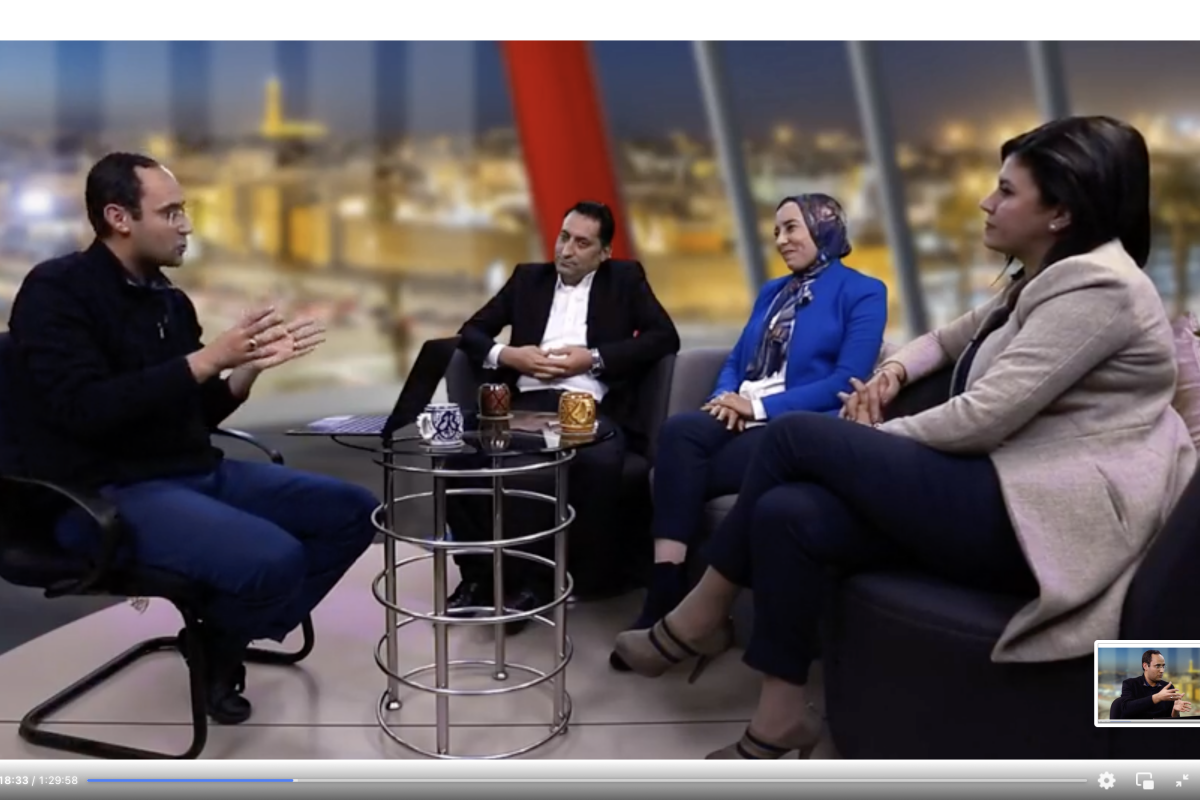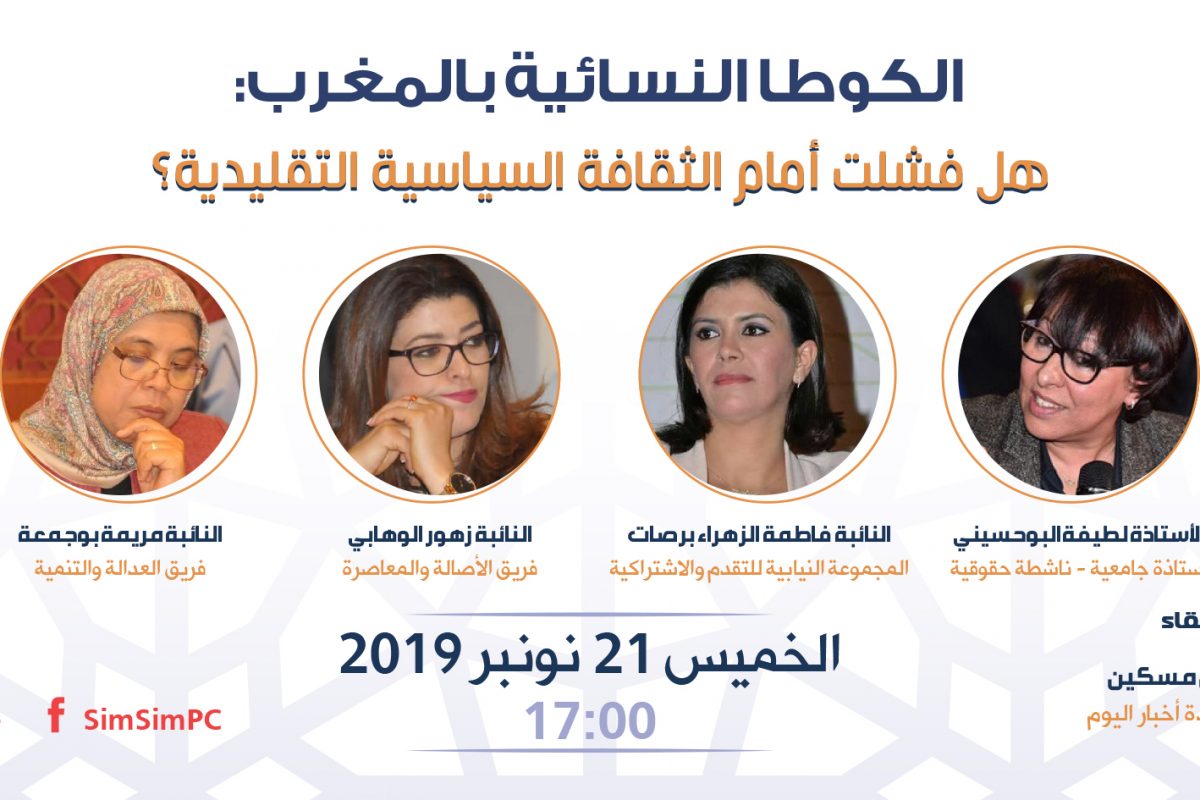Café Politico (Episode 6) discusses: How can Instances of Good Governance Improve Parliamentary Work?
The Competition Council as a Model
The 2011 constitution granted a distinguished position for good governance and regulation within the map of constitutional institutions that form a huge step in consolidating the state of law and freedoms, after guaranteeing their independence and the support of the State. While the emergence of some constitutional institutions has been delayed until further notice for overlapping reasons, and the completion of others has been halted due to their organizational structure, instances of good governance have achieved great improvements in the context of reviewing their legal framework, reaching a stage of maturity.
Instances of good governance derive their centrality from a cooperation with the Parliament, where they can be consulted through the Permanent Committees of the Legislative Institution on proposals for laws in accordance with the provisions of the rules of procedure of the two chambers of the Parliament, as well as on all issues related to their field of expertise, which contributes to the improvement of parliamentary work, especially in all aspects related to legislation.
The Competition Council, which lies within the instances of good governance and regulation stipulated in the Constitution, emerges as an independent body charged with regulating free and legitimate competition to ensure transparency and fairness in economic relations, especially through the analysis and control of the competitive situation in the markets, the monitoring of contradicting and/or illegal commercial practices, and economic concentration operations and monopoly. This council enjoys legal and financial independence.
However, this constitutional instance has received great attention since December 2015, when the government lifted all subsidies on liquid gas and all fuel types, given its role as a deciding authority in combating anti-competitive practices and monitoring economic concentration operations as defined in the law related to freedom of prices and competition, especially after the incomprehensible rises in fuel prices in the following months, and the growing talks about suspicions of anti-competitive practices in the market.
This interest was further enhanced in March 2021 after King Mohammed VI appointed a new President of the council. This comes right after the special committee, which conducted the necessary investigations in order to clarify the confusion caused by the Competition Council’s conflicted decisions, submitted a report on the issue of possible consensus in the fuel sector to the King on July 23 and 28 of 2020. The King has also ordered to refer these recommendations to the Head of Government in order to shed light on the accuracy of the current legal framework of the Council. This will strengthen its impartiality, and consolidate its position as an independent body that contributes to the establishment of good governance and the rule of law in the economic field and consumer protection.
The royal order did not find an actual implementation from the government of Saad Eddine El Othmani (2017-2021) as it was busy preparing for the 8th September 2021 elections. But the government of Aziz Akhannouch needed five months to prepare two bills to change and supplement Law No. 104.12 related to freedom of prices and competition, and Law No. 20.13 related to the Competition Council, and their approval at the meeting held on March 24, 2022. They required another three months to refer them to the Parliament (the last week of June). The Finance and Economic Development Committee of the House of Representatives approved them on July 21 of 2022, while an incomprehensible delay was recorded regarding the ratification procedure completion.
Today, there appears to be an urgent need to amend the legal arsenal of the Competition Council, to end the case of “self restraining”, after its decision to not pursue the investigation on the complaint about the suspicion of the existence of a consensus between the companies until the law is changed. However, the Council has been functioning normally and carrying out all its competencies in the rest of the files as well as reporting an opinion on the 13th of last September 2022 regarding the significant rise in the prices of raw materials in the global market, and the repercussions on the competitive functioning of the national markets. It has provided an accurate diagnosis of the fuel sector, and monitored the problems, mainly represented by the lack of transparency in obtaining import licenses, Morocco’s complete dependency on imports to provide supplies, and the increased needs for refined oil products after the closing of the “La Samir” refinery leading to the chronic shortage of the reserve stocks.
In the search for satisfactory answers to all the aforementioned problems, starting with the centralization of instances of good governance in the legislative work, evaluating their performance working with the Parliament, and ending with the outcomes of the Competition Council’s work as a model that receives more attention than others do in recent times, the “Cafe Politico” program is devoting its episode on presenting a new approach to this problematic issue, based on four main axes, namely:
- The position of instances of good governance within the map of constitutional institutions;
- The contribution of instances of good governance to improving parliamentary work, whether it being supervisory or legislative;
- The outcome of the work of the Competition Council in providing advisory opinions to the Parliament;
- Forms of cooperation between the Parliament and the Competition Council to deal with important cases, the fuel case as an example.
Episode guests

MIPA Institute
MIPA is a non-profit independent research institution based in Rabat, Morocco. Founded by a group of transdisciplinary researchers, MIPA’s mission is to produce systematic and in-depth analysis of relevant policy issues that lead to new and innovative ideas for solving some of the most pressing issues relating to democracy.

